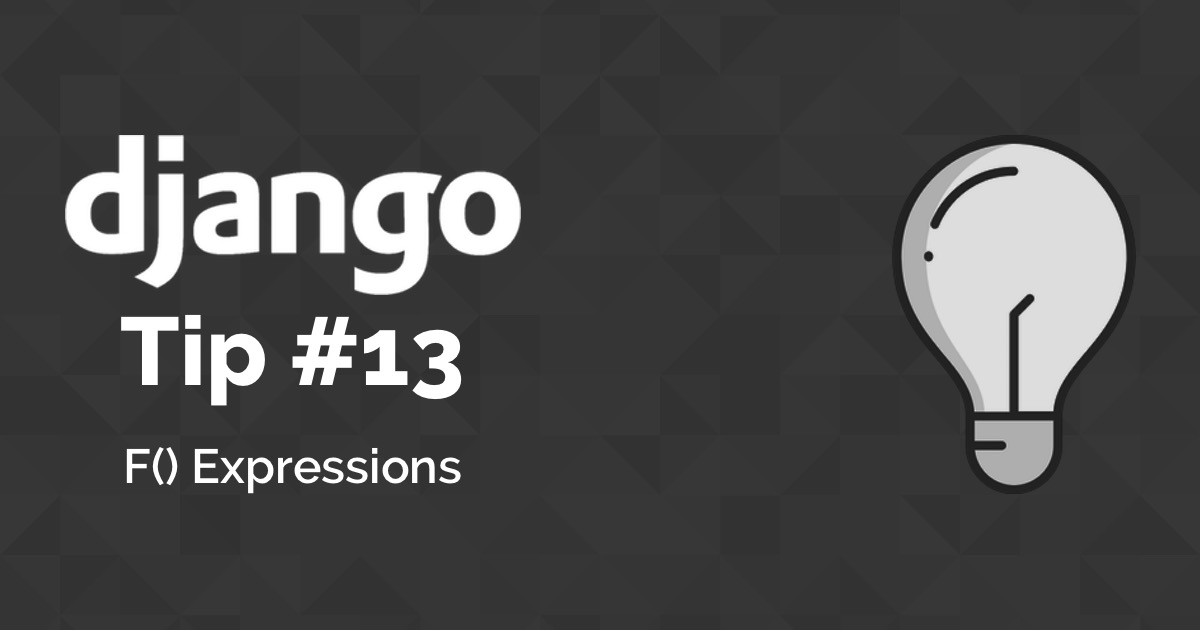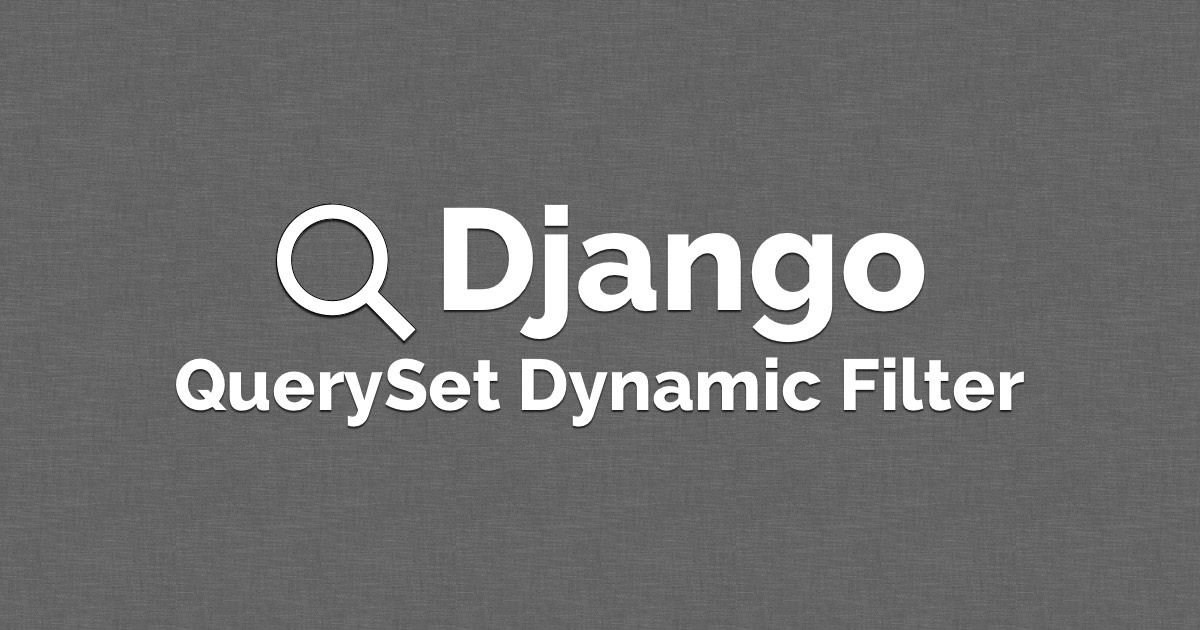In the Django QuerySet API, F() expressions are used to refer to model field values directly in the database. Let’s say you have a Product class with a price field, and you want to increase the price of all products in 20%.
A possible solution would be:
products = Product.objects.all() for product in products: product.price *= 1.2 product.save()Instead you could use an F() expression to update it in a single query:
from django.db.models import F Product.objects.update(price=F('price') * 1.2)You can also do it for a single object:
product = Product.objects.get(pk=5009) product.price = F('price') * 1.2 product.save()But take care with this kind of assignment. The F() object persist after saving the model.
product.price # price = Decimal('10.00') product.price = F('price') + 1 product.save() # price = Decimal('11.00') product.name = 'What the F()' product.save() # price = Decimal('12.00')So, basically after updating a field like that, product.price will hold an instance of django.db.models.expressions.CombinedExpression, instead of the actual result. If you want to access the result immediately:
product.price = F('price') + 1 product.save() print(product.price) # <CombinedExpression: F(price) + Value(1)> product.refresh_from_db() print(product.price) # Decimal('13.00')You can also use it to annotate data:
from django.db.models import ExpressionWrapper, DecimalField Product.objects.all().annotate( value_in_stock=ExpressionWrapper( F('price') * F('stock'), output_field=DecimalField() ) )Since price is a DecimalField and stock is a IntegerField, we need to wrap the expression inside a ExpressionWrapper object.
It can be used to filter data as well:
Product.objects.filter(stock__gte=F('ordered'))


 How to Create Django Data Migrations
How to Create Django Data Migrations  How to Create Group By Queries With Django ORM
How to Create Group By Queries With Django ORM  How to Filter QuerySets Dynamically
How to Filter QuerySets Dynamically  How to Extend Django User Model
How to Extend Django User Model  How to Setup a SSL Certificate on Nginx for a Django Application
How to Setup a SSL Certificate on Nginx for a Django Application  How to Deploy a Django Application to Digital Ocean
How to Deploy a Django Application to Digital Ocean